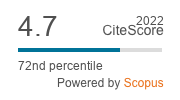In the Great Lakes region of North America, Gibberella ear rot (GER), caused by Fusarium graminearum, affects grain quality due to the accumulation of mycotoxins. GER severity is strongly influenced by environmental conditions; however, agronomic practices can also influence disease severity and mycotoxin accumulation. In this study, three separate small-plot experiments were conducted at Ridgetown, ON, Canada during 2019 and 2020 under an inoculated-misted system to determine Fusarium mycotoxin accumulation as affected by: (1) plant population density; (2) in-row-plant developmental variability; and (3) the effect of integrated Bt refuge genetics. In this study, DON concentrations were at least 49% higher in maize at 113,600 plants/ha compared to 79,000 plants/ha. Moreover, mycotoxin accumulation was higher in plants that were delayed developmentally in the crop row; total DON concentrations were at least 310% higher in late silked plants adjacent to early silked plants. Results of the plant population density and in-row-plant developmental variability suggest that the main driver for mycotoxin accumulation was stress induced by plant competition rather than environmental conditions; this highlights the importance of avoiding plant competitive stress as a strategy to reduce the risks of mycotoxin accumulation. In this study, there was no statistical difference in DON accumulation between the Bt component and the non-Bt component in each of the four hybrids tested; however, there was evidence that hybrids varied in susceptibility, including the Bt and non-Bt components that were paired commercially in a bag of seed maize. Reducing mycotoxins in maize requires integrated management, which includes agronomic considerations. These results indicate that mycotoxins are favoured with high plant populations and plant-to-plant variability in the row, especially in susceptible hybrids.
RESEARCH ARTICLE
Impact of agronomic practices on Fusarium mycotoxin accumulation in maize grain
K. Eli Related information
1Department of Plant Agriculture, University of Guelph, Ridgetown Campus, 120 Main St. E, Ridgetown, ON, N0P 2C0, Canada.
, A.W. Schaafsma Related information1Department of Plant Agriculture, University of Guelph, Ridgetown Campus, 120 Main St. E, Ridgetown, ON, N0P 2C0, Canada.
, D.C. Hooker Related information1Department of Plant Agriculture, University of Guelph, Ridgetown Campus, 120 Main St. E, Ridgetown, ON, N0P 2C0, Canada.
*Corresponding author: dhooker@uoguelph.
*Corresponding author: dhooker@uoguelph.
World Mycotoxin Journal: 15
(4)- Pages: 343 - 360
Published Online: February 18, 2022
2023 Journal Impact Factor
2.0
source: Journal Impact Factor 2023™ from Clarivate™

Institutional Offers
For institutional orders, please contact [email protected].
Purchase Options
-
P. Battilani and M. Camardo Leggieri
-
F. Xu, R.C. Baker, T.B. Whitaker, H. Luo, Y. Zhao, A. Stevenson, C.J. Boesch and G. Zhang
-
A.O. Aasa, F.F. Fru, O.A. Adelusi, S.A. Oyeyinka and P.B. Njobeh
-
F. Wu
-
V. Ostry
-
V. Ostry
-
R. Bandyopadhyay, A. Ortega-Beltran, A. Akande, C. Mutegi, J. Atehnkeng, L. Kaptoge, A.L. Senghor, B.N. Adhikari and P.J. Cotty
-
A. Logrieco, A. Moretti and M. Solfrizzo
-
G. Schatzmayr and E. Streit
-
B. Grenier and I. Oswald



